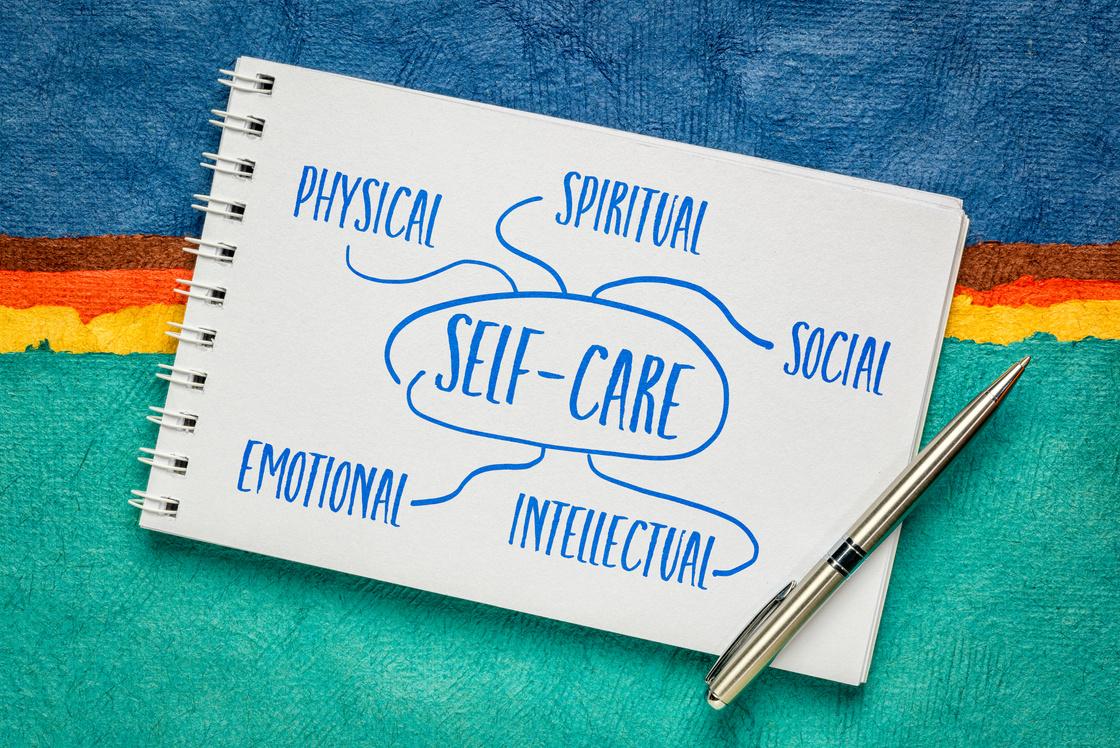
2 minute read
CREATING A SELF-CARE ROUTINE
Assessing your self-care needs and setting goals
Creating a self-care routine begins with assessing your individual self-care needs and setting meaningful goals Self-care needs vary from person to person, so it is important to take the time to reflect on what areas of your life require attention and nurturing Start by examining different aspects of self-care, such as physical, mental, emotional, and spiritual well-being Assess how well you are currently addressing these areas and identify any imbalances or areas that need improvement Consider what activities or practices make you feel refreshed, rejuvenated, and fulfilled.
Advertisement
Think about the things that bring you joy, peace, and a sense of purpose. Reflect on your priorities and values in life What are the areas that align with your core beliefs and aspirations? Once you have a clear understanding of your self-care needs, set specific and achievable goals For example, if physical well-being is a priority, your goal might be to engage in 30 minutes of moderate exercise five times a week If mental well-being is a focus, you might set a goal to dedicate 10 minutes each day to mindfulness or meditation practices Setting goals provides a clear direction and helps you stay focused on your self-care journey.
Designing a personalized selfcare plan
After assessing your self-care needs and setting goals, it is time to design a personalized self-care plan. This plan will serve as a roadmap for integrating self-care practices into your daily life. It should be realistic, flexible, and tailored to your unique circumstances and preferences. Consider the different dimensions of self-care and identify specific activities that align with your goals and needs. For physical selfcare, this might include activities like going for a walk, practicing yoga, or preparing nutritious meals. For mental self-care, you might incorporate activities such as reading, writing in a journal, or engaging in creative hobbies. Emotional self-care can involve practices like practicing selfcompassion, engaging in deep conversations with loved ones, or seeking therapy when needed. For spiritual self-care, you might include activities like meditation, prayer, spending time in nature, or engaging in acts of kindness and service.
When designing your self-care plan, consider factors such as time availability, resources, and personal preferences. Start small and gradually build upon your selfcare routine. It is important to be realistic and flexible, allowing for adjustments as needed. Find a balance between activities that bring immediate gratification and those that contribute to long-term well-being.
Incorporating self-care habits into your daily life
Creating a self-care routine involves incorporating self-care habits into your daily life. Consistency is key for making self-care a regular part of your routine and reaping the benefits it offers. Start by identifying pockets of time throughout your day that can be dedicated to selfcare activities. It could be waking up 15 minutes earlier to practice meditation, taking a short walk during your lunch break, or allocating time in the evening for relaxation and self-reflection. Small increments of time can make a significant difference when consistently devoted to selfcare.
Develop rituals or cues that remind you to engage in self-care For example, you might associate brewing a cup of herbal tea with a moment of mindfulness or designate a specific area in your home for meditation or relaxation These cues help anchor your selfcare habits and make them more automatic.
Integrate self-care into your existing routines and habits Find ways to combine self-care activities with other daily tasks. For instance, you can listen to a podcast or an audiobook while exercising, practice deep breathing while waiting in line, or engage in positive self-talk while getting ready in the morning. This integration allows self-care to become seamlessly woven into your daily life.
Be mindful of self-care barriers and develop strategies to overcome them. If time is a challenge, identify time-wasting activities that can be replaced with self-care practices. Delegate tasks or seek support from others to create more time for self-care. Remember that self-care is a priority and an investment in your well-being. Incorporate accountability into your self-care routine. Share your self-care goals and plans with a trusted friend or family member who can provide support and encouragement. Consider joining a self-care group or participating in online communities to connect with like-minded individuals who are also focused on their wellbeing.











